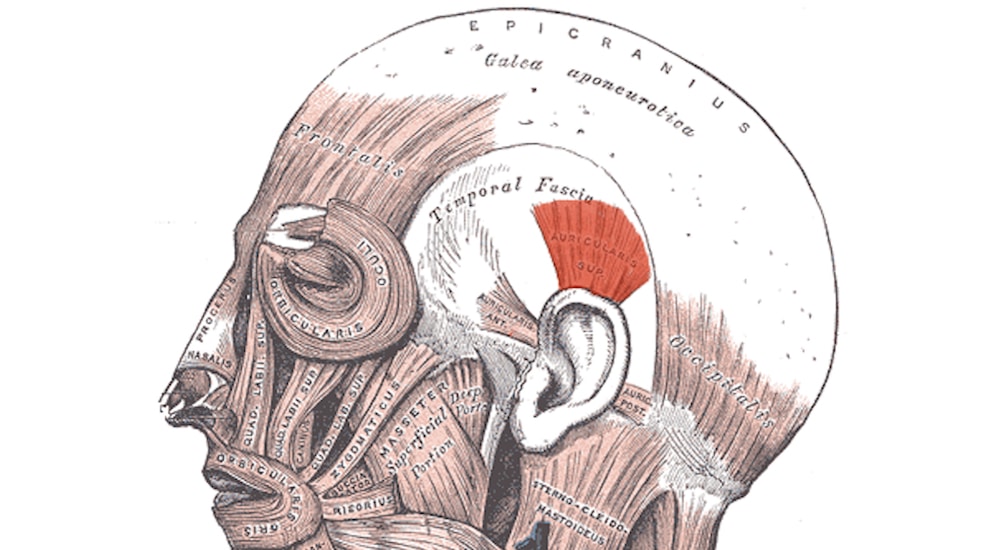Humans activate skull and scalp muscles when greater listening effort is required - study
Although ear movements possibly generated by signals recorded in a recent experiment are so minuscule that there is probably no perceivable listening benefit, the study may result in ways to help researchers measure the effectiveness of hearing aids on listening effort, say researchers.

Public domain
Three large muscles long thought to be vestigial do apparently engage when we listen. A study published in the journal Frontiers in Neuroscience has established that the muscles, particularly the superior auricular muscle, exhibit increased activity during effortful listening tasks, and not merely as a reflex.
In challenging auditory situations, we try to use these muscles as many animals do - such as our primate ancestors - to funnel sound to our auditory system. There is no suggestion from this research that we are doing much more than making monkeys of ourselves.
Listening effort is a key part of modern hearing science and manufacturers' experts seek design and technology elements in hearing aids precisely to reduce toil for our brains. But this successful attempt to show that humans still use auricular muscles - or try to - is unlikely to generate too much...
This content is reserved for subscribers to Audiology Worldnews
Already subscribed Log in


